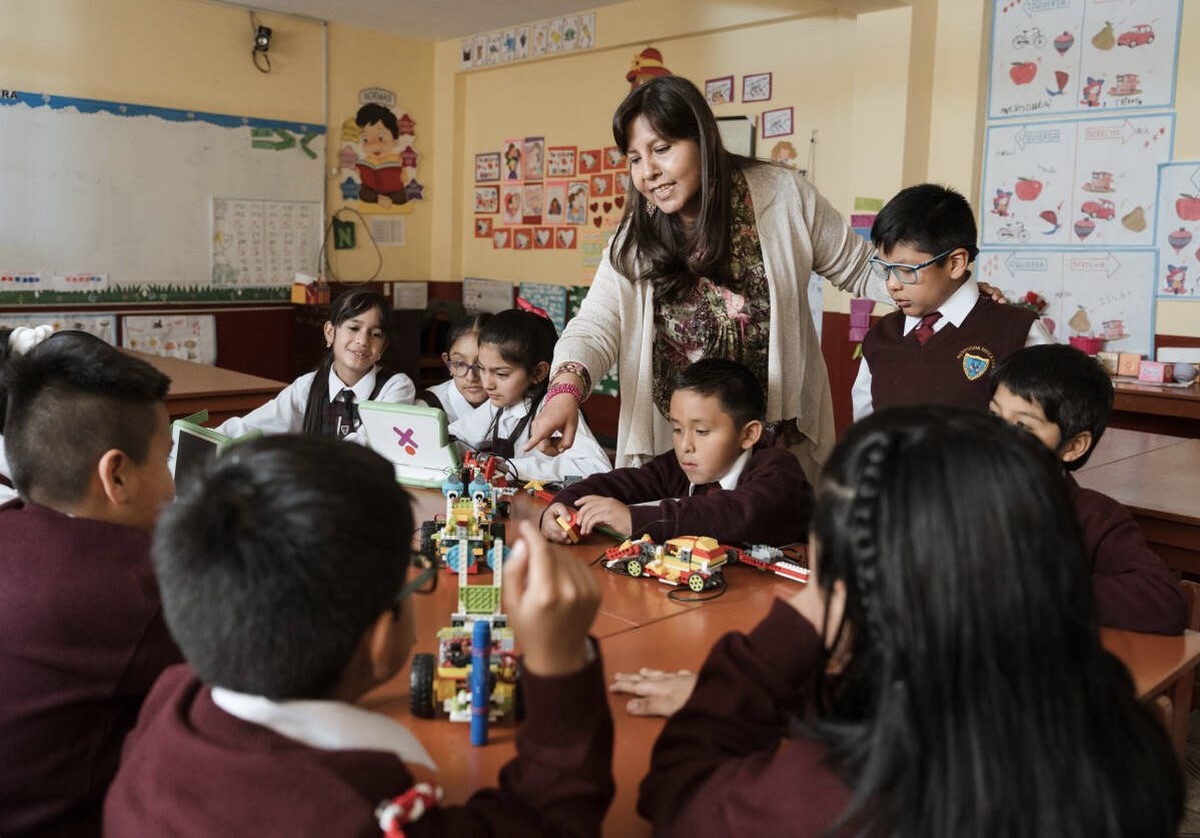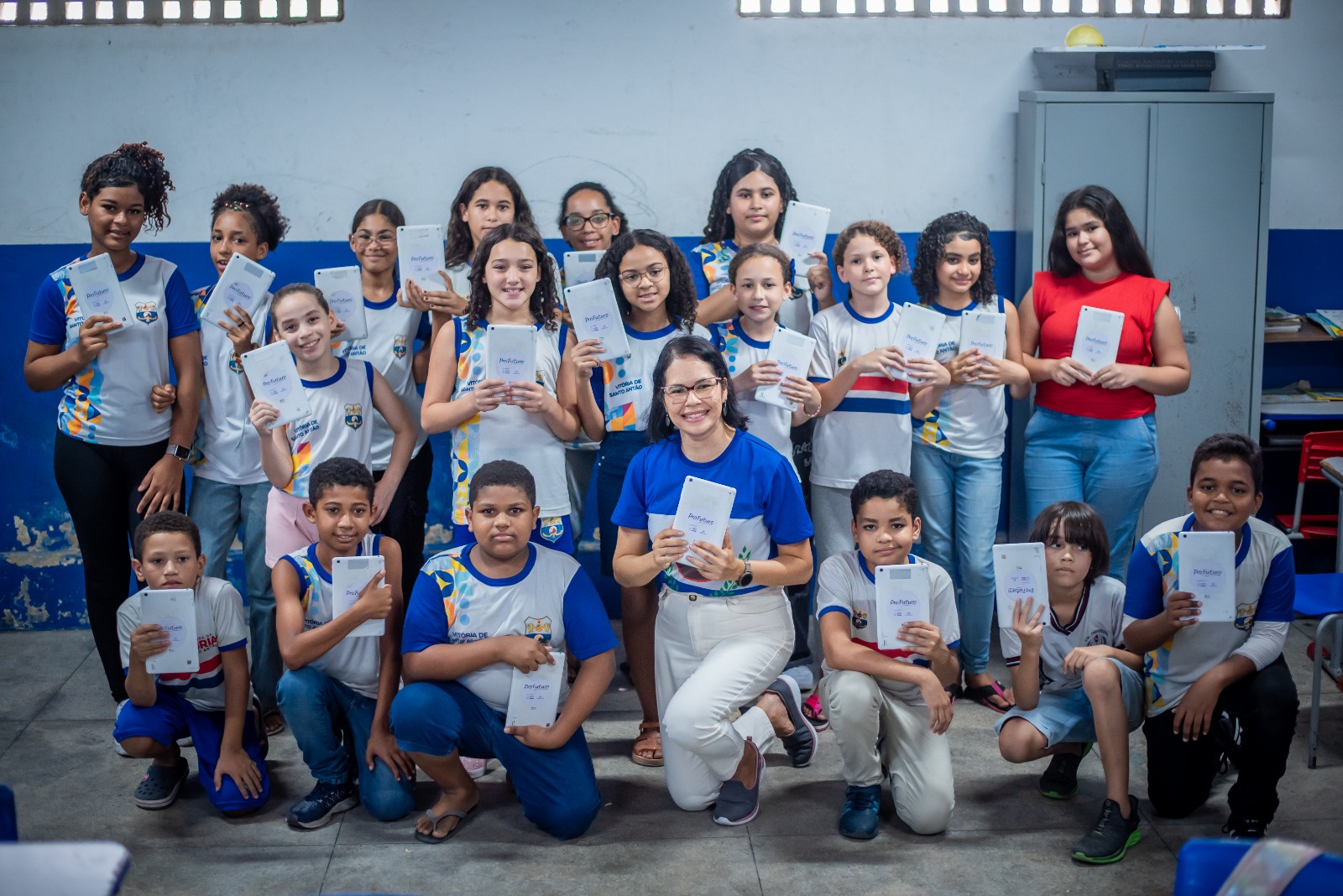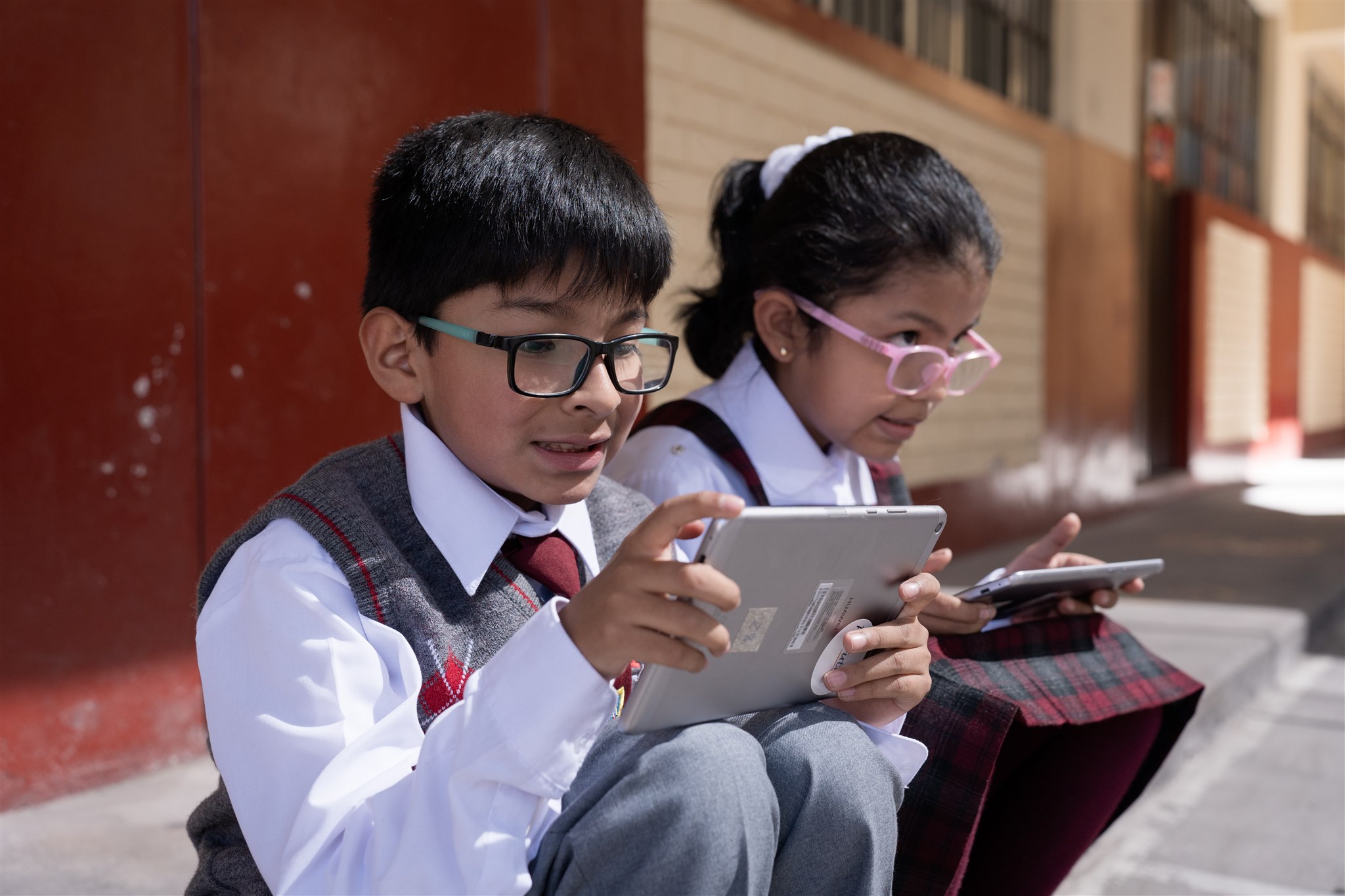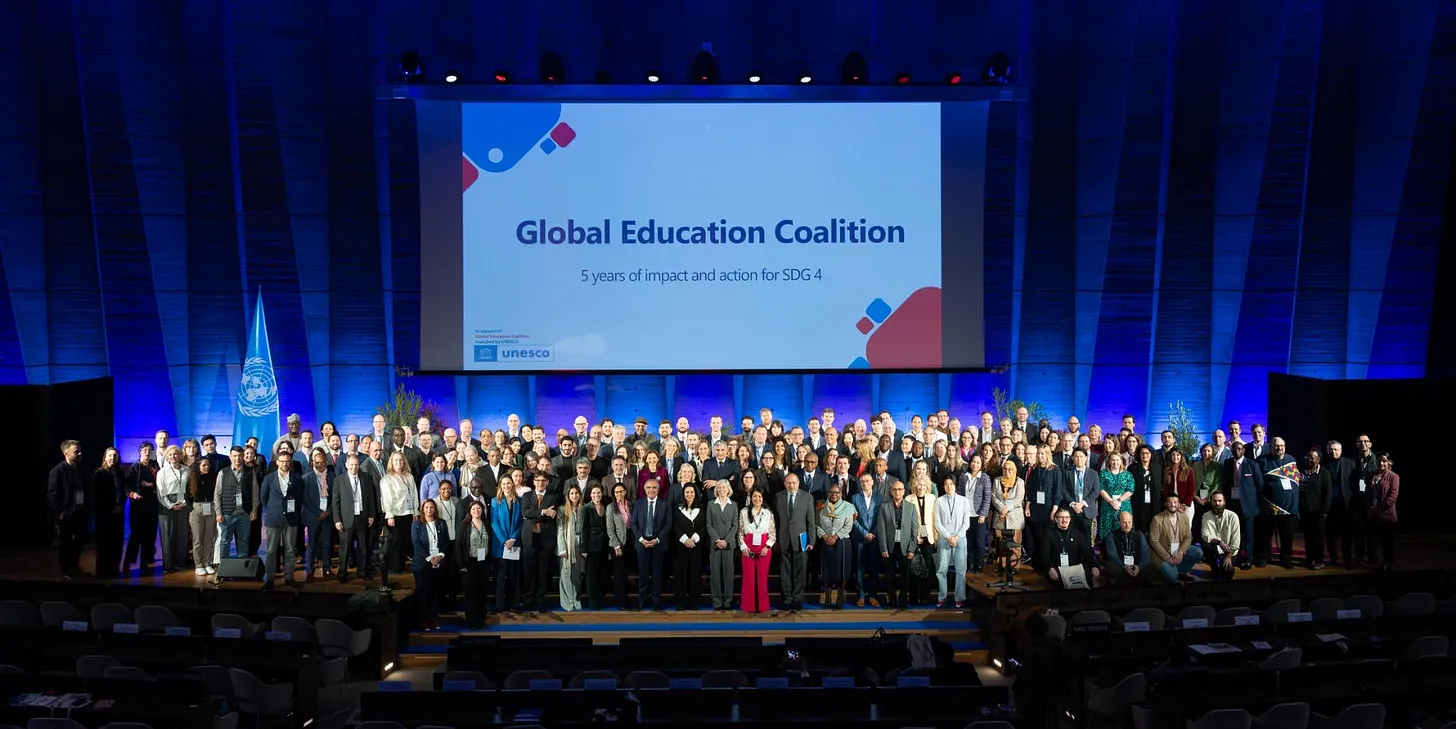María Teresa Cornejo lives her educational vocation with a clear objective: to promote the digital and technological education of her students and prepare them for the highly technological future that their adult life will bring. A teacher in pedagogical innovation at the República de Venezuela school in Arequipa, Peru, María Teresa is one of the more than 350,000 teachers who are currently part of the ProFuturo programme.
Smiling, María Teresa still remembers perfectly what motivated her to start training in new technologies: “I saw a boy in a webinar who had created a digital app to help blind people. It made such a strong impression on me that I thought: And I asked myself: why can’t the students at my school do it?”
Following her teaching vocation, she decided to develop with ProFuturo which, since its inception in 2016, has trained thousands of teachers from 39 countries in Latin America, the Caribbean, Africa and Asia. In 2023 alone, 342,000 teachers were trained who, in turn, strengthened the digital skills of 1.2 million children in more than five thousand schools.
The first step was to use the digital platform of this initiative in order to improve their students’ learning experience. In this way, the teacher acquired the basics to understand fundamental concepts and this encouraged her to continue researching. “It made me understand that more than teaching students robotics, electronics or artificial intelligence, you have to develop their computational thinking as an indispensable skill not only at an educational level, but also as people,” she tells us.
A window on training
The daughter of a family of teachers, María Teresa Cornejo grew up sharing her parents’ passion for education, with a special sensitivity for children in vulnerable situations. “When I arrived at my school, the computer room was not in use, it was closed. All we did was watch videos with the projectors and there was a certain fear and insecurity when using the equipment so as not to damage it. My school is located in the city centre, close to the cultural centre, but it was in very poor shape. In many respects, it was worse than a rural school,” she tells us. That was, she tells us, until, after the school joined the ProFuturo programme, the first tools arrived: software and a trolley with a laptop-server, several tablets and a projector, which they decided to call “the mobile classroom”.
“Since then, ProFuturo has been the backbone of my work and my school, despite its shortcomings and how small it is, has been elected an outstanding national school,” she says proudly. Thanks to this support, this education professional has received digital educational resources, as well as new training for teachers and learning in innovative methodologies to apply to their teaching.
“We want students to become producers of technology; not just consumers”
An outstanding teacher, she keeps in touch with other experts in education through meetings in which they share experiences and enrich their common work. “We seek to be able to raise our students’ level so that they can overcome the existing gaps between state schools. Using technology, we get students to learn the different subject areas by teaching across the curriculum, but we also use it to be able to train ourselves, generate knowledge and resources, and be productive as teachers,” she points out.
Students of computational thinking
Based on all this learning, the educator has developed a proposal that seeks the digital transformation of primary schools, which she has applied to the school where she works, consisting of 12 classrooms with 6 grades of primary school that caters for about 250 students. “My proposal seeks to develop computational, critical and creative thinking through the activities we carry out. If traditionally, and still today, reading comprehension and logical thinking determine a person’s success, those who do not develop their computational thinking now will be illiterate, because they will not understand how these technologies work. We want students to become producers; not just consumers.“
María Teresa is optimistic: “The risks are many, but I want to prepare students so that they can respond to the challenges that the future presents to them and resolve problematic situations that have not yet occurred. We don’t know what new professions will emerge from now on, but we are seeing that some are already becoming obsolete while other technology-related activities are emerging,” she says.
The necessary support
In the midst of all this, she tells us: “ProFuturo is really like a scaffold for everything we do.” Thanks to the support received, she feels completely empowered. “For example, when they saw the proposal I was carrying out, we received eight Microbit cards so that students could download the programs they had created on a platform, install them physically and check how they worked. Now they can see how what they create becomes real.“
Her proposal for digital transformation in the classroom was already tested in her school during the previous year and obtained positive results. She goes on to list their achievements: “I have been able to observe that my students now have high levels of abstraction, a great problem-solving ability in a systematic way and have been able to develop collaborative work, their creative thinking, their autonomy and the idea of digital citizenship.” “They are aware that artificial intelligence, for example, can do a lot of harm, but if it is in the hands of a human being who thinks about others and who wants to make society and the world a better place, that risk decreases.”
This Peruvian teacher has used her school as a laboratory and, at this new stage of the project, has introduced the training of artificial intelligence models with machine learning. Now, she does not rule out applying her system to other areas of Peru. “I am validating the proposal in phases, which are like milestones in this dream. In the future, I want to implement it in other schools as well and, if the results are just as satisfactory, let’s see how far we go.”
The ProFuturo programme is an initiative promoted by the Fundación Telefónica and the “la Caixa” Foundation that seeks to narrow the education gap in the world, providing quality digital education to children living in vulnerable environments and implementing educational innovation projects through technology.
#EducatingTransforms
Would you like to know more about ProFuturo’s commitment to education?
More information available at: https://profuturo.education/
X: @ProFuturo_
IG: @profuturo_
FB: @ProFuturoEducation
YT: ProFuturo
LK: ProFuturoEducation






